HEMP MEMO
✓ Originally from Central Asia, it‘s a plant from the Cannabaceae family, like hops and recreational cannabis.
✓ The hemp we are talking about, also known as textile or industrial hemp, has a very low tetrahydrocannabinol (THC) content, the psychoactive substance of cannabis, containing less than 0.2%.
✓ The female plants of Cannabis sativa produce a large quantity of edible seeds called hempseed. They are particularly rich in plant proteins and have many health benefits.
✓ The rigid part of the stalk, the hurd, is used as natural insulation, for making plasters, and concretes. With the flowers and leaves, essential oil is obtained. Hemp fiber, on the other hand, has long been used in the textile industry for making clothes.
A plant used since prehistory
Before venturing into hemp, Vincent Lartizien was a professional surfer in Hawaii for 18 years. A sport with no fear of the unknown, where he draws his entrepreneurial energy. Back in France, he first started a Montessori school, convinced by this alternative educational approach.
But it was a trip to India that changed his destiny for good (he’s certainly not the first!). There, he discovered the textile, food, and ecological uses of hemp. Upon returning to France, he underwent agricultural training to understand this sector he wasn’t familiar with yet.
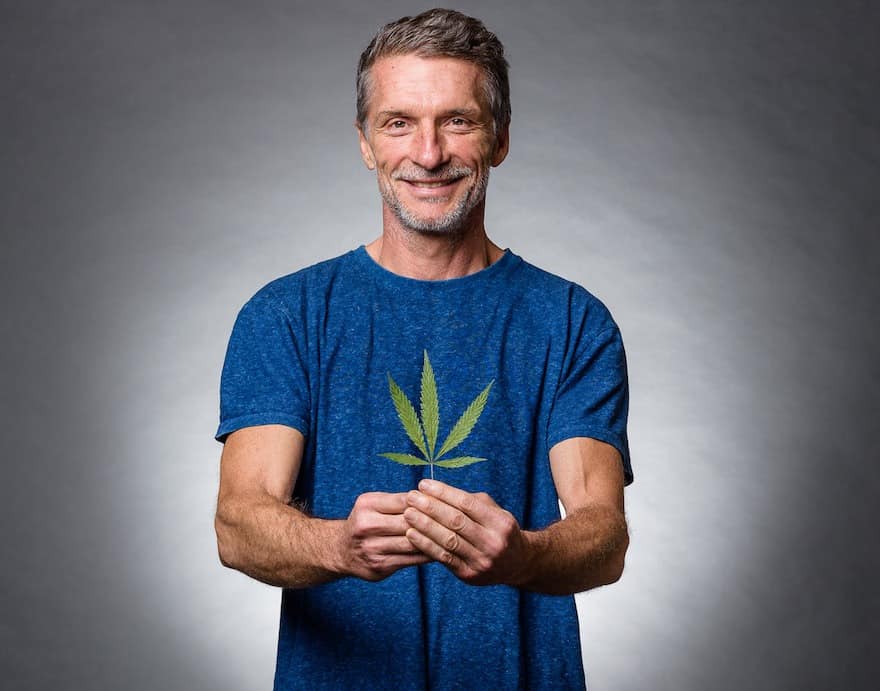
Before telling us about his company, Vincent gives us a brief historical overview of this “do-it-all plant.” We discover that it is central to the history of humanity. Textile, therapeutic, nutritional uses, hemp has been massively employed since the Neolithic. What’s in common between the first Bible printed by Gutenberg, Napoleon’s soldiers’ uniforms, and ancient ship sails? They were all made from hemp.
“Hemp meets the 4 needs of Man: it allows him to eat, heal, build his home, and dress”
However, the beginning of the 20th century saw the gradual disappearance of this plant. The United States heavily taxed it with the “Marijuana Tax Act,” then banned it. France did the same. Whether hemp contained THC, its psychoactive component, or not, as is the case with industrial and textile hemp.
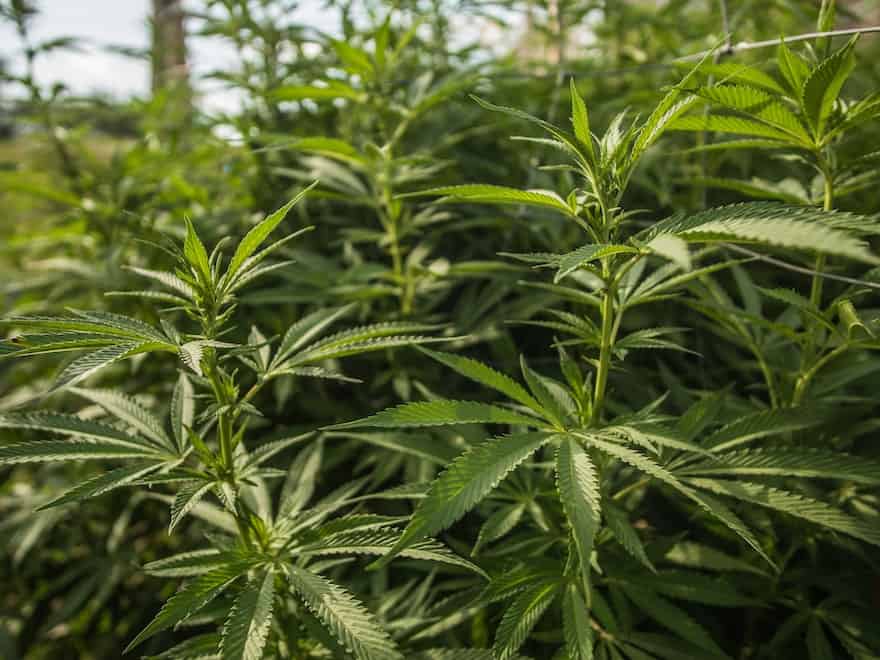
Thus, the cultivated areas in France decreased from 180,000 ha in the mid-19th century, to 700 ha in 1960… And it was only in the 1990s that slightly more lenient legislation allowed the French sector to regain some ground.
A pioneer of French organic hemp
In 2016, Vincent launched his hemp processing company and set it up in Saint-Geours-de-Maremne, a small village between Dax and Bayonne. His objective: to rebuild a French supply chain and redevelop its uses. And this, while respecting the specifications of organic farming, which represents only 3000 ha out of the 20,000 ha of hemp cultivated in France today.
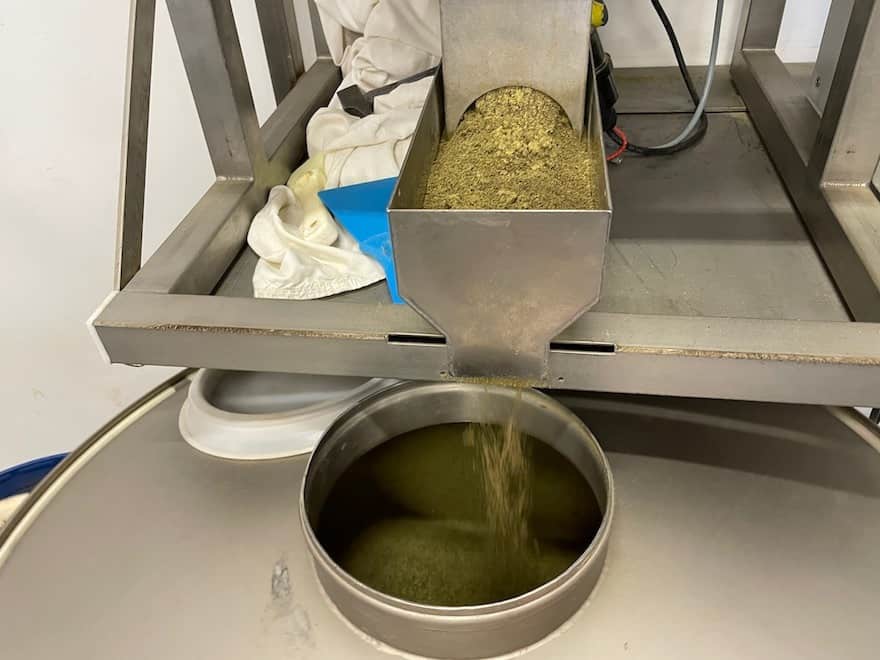
To do this, he began by training organic farmers on this little-known plant, which requires quality soils. And committed to buying their production, which he transforms into finished products sold in organic stores or to industrial manufacturers. The company now works with 20 farmers, and their workforce is constantly increasing. Requests for training and partnerships are pouring in since organic hemp is profitable, cleans the soil, and requires very little water – all interesting characteristics for a farmer.
Under the brand Nunti Sunya, Vincent commercializes dehulled hemp seeds, those delicious sources of plant proteins with a nutty taste. To make them, the company processes raw seeds through a machine almost unique in France (aptly called a “dehuller”!) that separates the seed kernel from its shell.

Vincent also produces t-shirts made from hemp plant stalks, with much superior properties compared to those made from cotton, as well as hemp oil obtained by pressing hemp seeds with a cold oil press. And also CBD, concentrated proteins, pasta shells..
Nunti Sunya in 2020: 200 tons of hemp processed, a small workshop, a team of about ten people, a business that doubles its sales every year. And big projects.
Towards therapeutic cannabis
With volumes constantly increasing, the need for a larger space became evident, and it is obviously with hempcrete that a second workshop of 1400 m2 is being constructed. Its construction was guided by principles based on “telluric” energies, waves that are supposedly beneficial or not for living beings. Because Vincent wishes to send positive waves to his hemp, “so that it nourishes human health.”
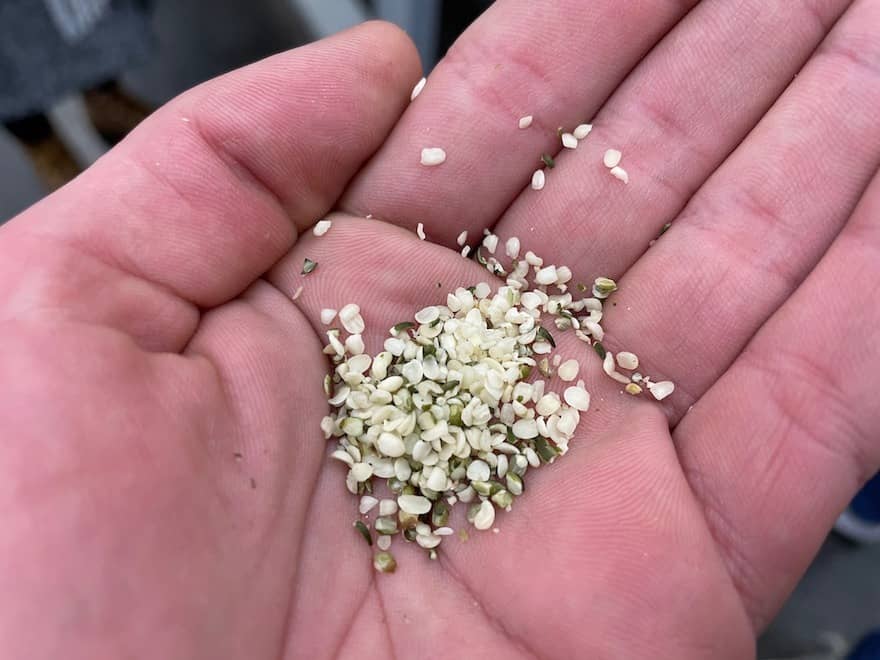
Starting in 2023, he will complete mastering the entire production of his t-shirts by performing the hemp defibering in his workshop. This technical step is currently carried out in Romania due to the loss of expertise in France.
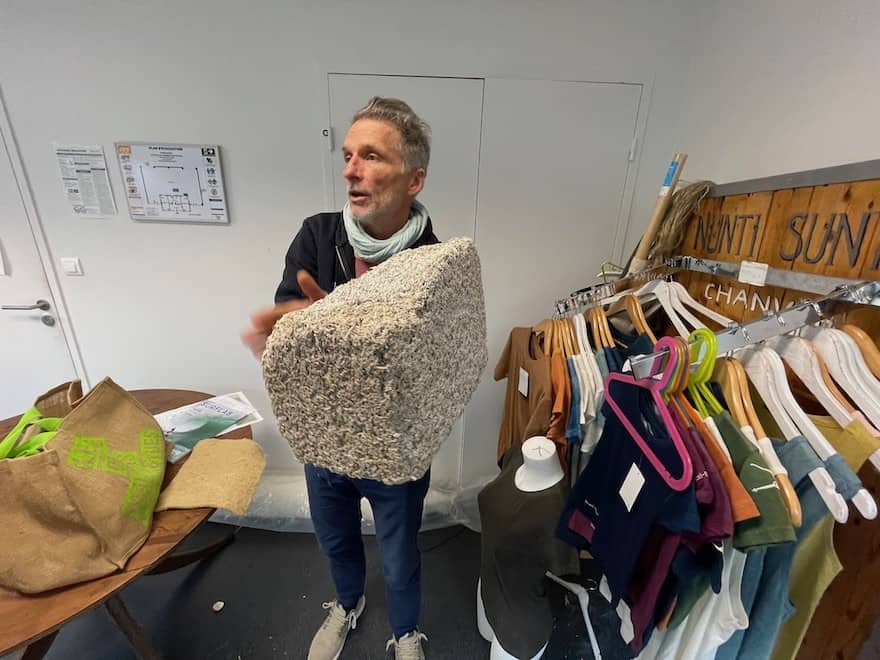
In the longer term, Vincent looks towards therapeutic cannabis and dreams of building his own “hemp clinic.” Already widely available in the United States, therapeutic cannabis is still in its infancy in France, but it seems it’s only a matter of time before we too can benefit from its advantages. And when more relaxed legislation is adopted, Nunti Sunya will be ready!



